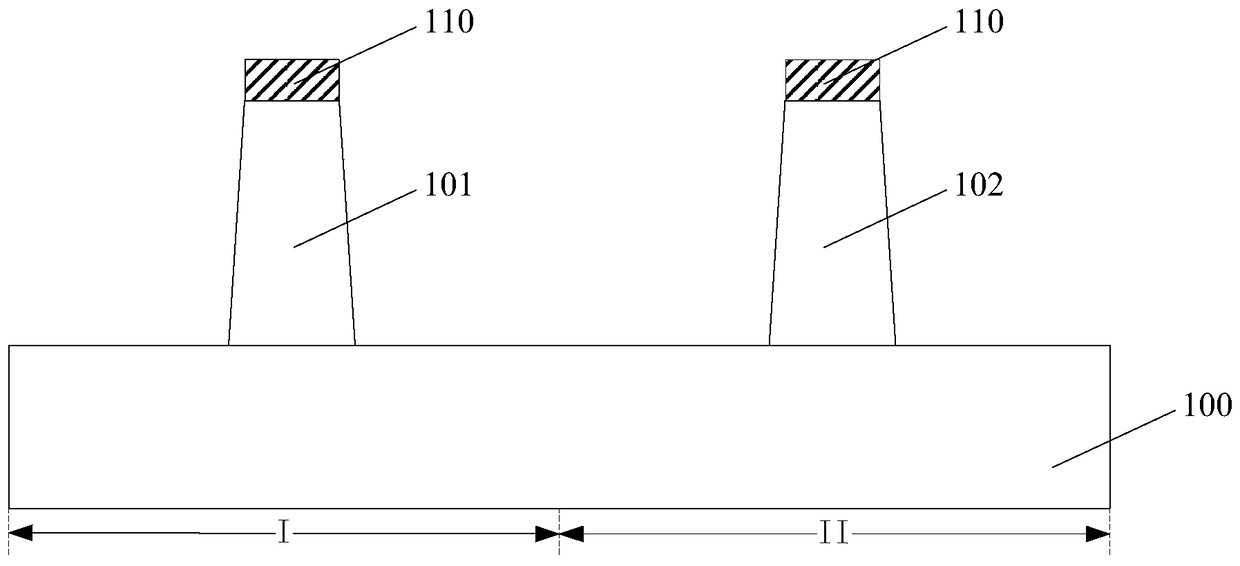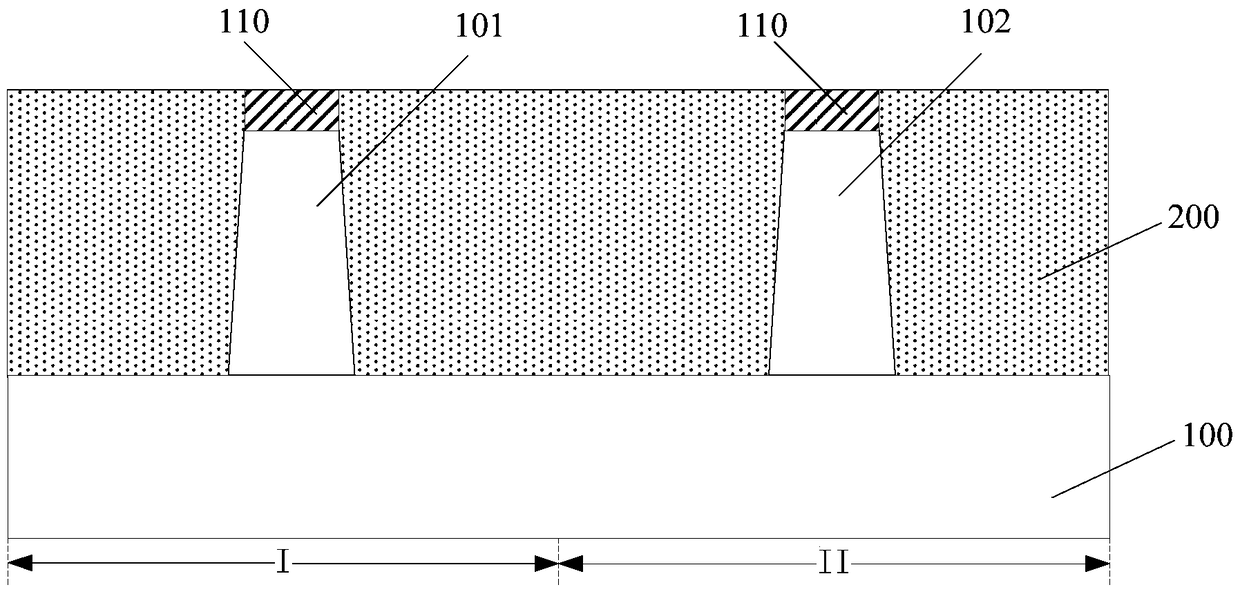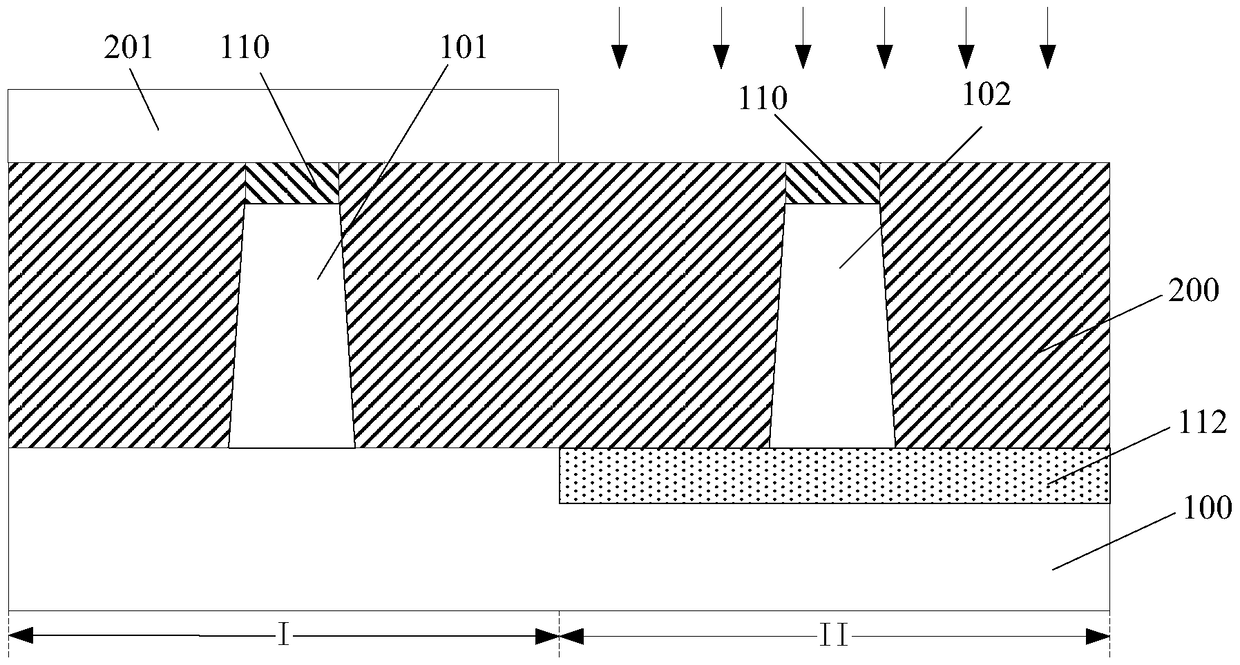Fin field effect transistor and method of forming the same
A fin field effect and transistor technology, applied in semiconductor devices, semiconductor/solid-state device manufacturing, electrical components, etc., can solve the problems of low saturation current and low mobility of PMOS transistors, and improve hole carrier mobility. , high mobility, and the effect of improving performance
- Summary
- Abstract
- Description
- Claims
- Application Information
AI Technical Summary
Problems solved by technology
Method used
Image
Examples
Embodiment Construction
[0033] As mentioned in the background art, the performance of the P-type fin field effect transistor formed in the prior art needs to be further improved.
[0034] Studies have found that the migration rate of hole carriers in germanium or germanium-silicon materials in P-type fin field effect transistors is greater than that in silicon, and using germanium or germanium-silicon materials as fin materials can improve the performance of P-type fin field effect transistors. The hole mobility of the P-type fin field effect transistor, thereby improving the performance of the P-type fin field effect transistor. In one embodiment, a germanium layer or a silicon germanium layer may be formed by epitaxy on a substrate, and then the germanium layer or silicon germanium layer may be etched to serve as the channel region of the P-type fin field effect transistor. However, the yield of the single-crystal germanium layer formed by the epitaxial process is low and the cost is high, and ther...
PUM
 Login to View More
Login to View More Abstract
Description
Claims
Application Information
 Login to View More
Login to View More - R&D
- Intellectual Property
- Life Sciences
- Materials
- Tech Scout
- Unparalleled Data Quality
- Higher Quality Content
- 60% Fewer Hallucinations
Browse by: Latest US Patents, China's latest patents, Technical Efficacy Thesaurus, Application Domain, Technology Topic, Popular Technical Reports.
© 2025 PatSnap. All rights reserved.Legal|Privacy policy|Modern Slavery Act Transparency Statement|Sitemap|About US| Contact US: help@patsnap.com



